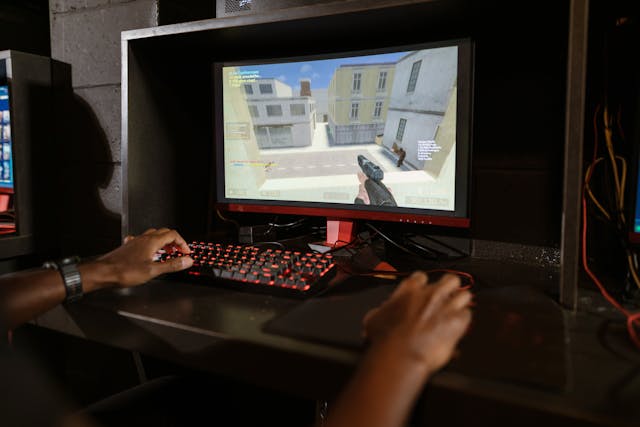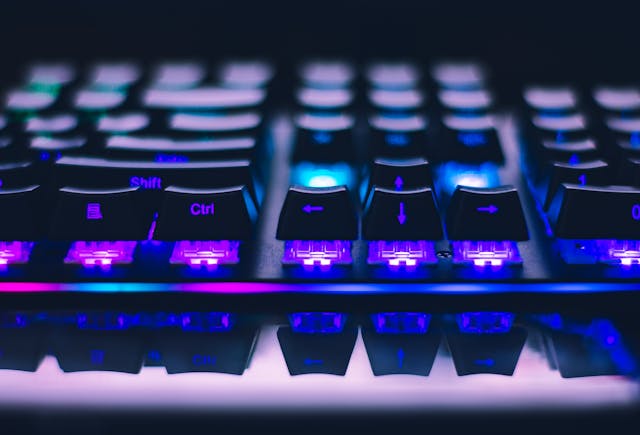In the world of education, video games have often been viewed as a distraction, a time-wasting activity that takes away valuable studying and learning time. However, recent research suggests that video games positively impact academic performance and cognitive development.
Contrary to popular belief, video games can be a powerful tool for learning and skill development, providing numerous benefits that can enhance a student’s academic journey. So, if students think “I need help with my homework” then, probably video games will help them cope with this task. How?
In this article, we will explore the potential benefits of video games in improving academic performance and how they can be effectively integrated into a student’s study routine.
Table of Contents
The Cognitive Benefits of Video Games
Improved Concentration and Focus
One of the key cognitive benefits of playing video games is improved concentration and focus. Many video games require players to pay close attention to details, react quickly to stimuli, and maintain a high concentration level throughout the game. This constant engagement can help students develop better focus and attention skills, which can be highly beneficial when studying and completing assignments. By practicing sustained focus during gameplay, students can transfer this skill to their academic work, enabling them to concentrate for longer periods and absorb information more effectively.
Enhanced Problem-Solving and Critical Thinking Skills
Video games often present players with complex challenges and puzzles that require problem-solving and critical-thinking skills to overcome. Whether navigating through a virtual world, strategizing in a multiplayer game, or solving intricate puzzles, video games stimulate the brain and encourage players to think critically and analytically. These problem-solving skills are transferable to academic tasks, such as solving math problems or analyzing complex texts. By engaging in video games, students can develop their ability to think critically, approach challenges from different angles, and develop creative solutions.
Improved Memory and Cognitive Flexibility
Video games can also have a positive impact on memory and cognitive flexibility. Many games require players to remember and recall information, such as character abilities, game rules, or specific strategies. This constant exercise of memory can strengthen the brain’s ability to retain information, which can be beneficial for studying and remembering academic content. Additionally, video games often challenge players to adapt to changing circumstances and make quick decisions, promoting cognitive flexibility and the ability to think on one’s feet. These skills can be valuable in academic settings where students must adapt to new information and think critically in fast-paced situations.
Game-Based Learning: Bridging the Gap Between Education and Entertainment
The Rise of Game-Based Learning
Recognizing the potential benefits of video games, educators have started embracing game-based learning to engage students in the classroom. Game-based learning involves using educational video games or gamified activities to teach and reinforce academic concepts. It combines the entertainment value of video games with educational content, making learning a more enjoyable and interactive experience for students.
Engaging and Motivating Learning Experience
One of the key advantages of game-based learning is its ability to engage and motivate students. Traditional teaching methods often need help to capture and maintain students’ attention, leading to disengagement and lack of motivation. However, when learning is presented as a game, students are more likely to be actively involved and motivated to participate. Video games’ interactive and immersive nature makes learning enjoyable, encouraging students to actively seek knowledge and overcome challenges. As a result, students are more likely to retain information and develop a deeper understanding of academic concepts.
Developing 21st Century Skills
In addition to academic content, game-based learning helps students develop essential 21st-century skills, such as collaboration, communication, problem-solving, and digital literacy. Many educational video games require students to work together in teams, communicate effectively, and collaborate to achieve a common goal. These collaborative experiences foster teamwork and teach students how to work effectively with others, an essential skill in today’s interconnected world. Furthermore, game-based learning helps students develop digital literacy skills as they navigate and interact with technology platforms, improving their ability to use digital tools for education and future careers.
Examples of Game-Based Learning
Numerous educational video games and platforms have emerged to support game-based learning across various subjects and grade levels. Here are a few examples:
- Dragon Box: Dragon Box is an educational game that introduces young children to geometry concepts in a fun and interactive way.
- Kahoot!: Kahoot! is a popular platform that allows teachers to create interactive quizzes and games to engage students in classroom learning.
- Minecraft: Minecraft is a sandbox game that encourages creativity, problem-solving, and collaboration. Many educators have incorporated Minecraft into their lessons to teach subjects like history, science, and architecture.
- Prodigy: Prodigy is an online math game that helps students practice and improve their math skills through interactive gameplay.
- Code.org: Code.org offers a range of coding games and activities designed to teach students the fundamentals of computer programming.
Striking a Balance: The Importance of Moderation
While video games can offer numerous benefits for students, it is essential to strike a balance and practice moderation. Excessive gaming can lead to negative consequences, such as decreased academic performance, social isolation, and health issues. Students must manage their time effectively, prioritize their academic responsibilities, and engage in various activities beyond gaming. Encourage students to limit their gaming time and establish a healthy routine that includes studying, physical activity, socializing, and other hobbies.
Conclusion
Contrary to popular belief, video games can play a positive role in improving academic performance. The cognitive benefits of video games, such as improved concentration, problem-solving skills, and cognitive flexibility, can greatly enhance students’ ability to learn and succeed in their studies. Additionally, game-based learning provides an engaging and interactive learning experience, fostering essential 21st-century skills and making education more enjoyable for students.
However, it is important to balance and practice moderation to avoid the potential negative effects of excessive gaming. By harnessing the benefits of video games and incorporating them into a well-rounded study routine, students can unlock their full potential and thrive academically. So, the next time you reach for your controller, remember that gaming can be more than just entertainment—it can be a valuable tool for academic success.







